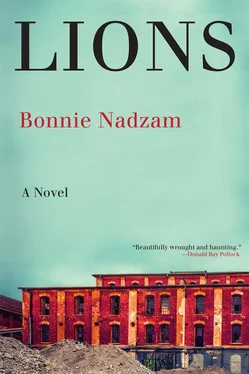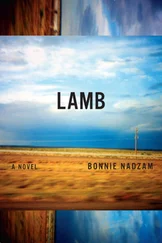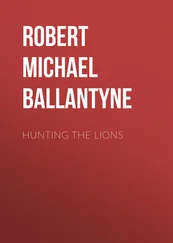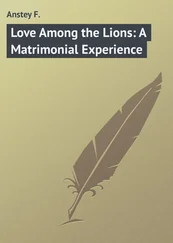The factory was the same maze of pipes, diffusion cells, flumes, and tanks you’d find in there today, but all the steel now rust-bitten and corroded was at that time a bright blue metal. Rushville’s job was on the first floor of the north side, where great agitators blended sugar beet juice with lime. He was to produce the lime rock in a massive coke oven. Around him in stacks of red brick and twists of metal were narrow metal staircases and fires, hot water, towers of steam. The decaying beet mash in the plumbing stank like hellrot, and where it landed outside of the plumbing it slicked every walking surface with slime. On a day when the graining screens malfunctioned, which was common enough, Rushville was on shift. He shut off the steam and began disassembling the heating drum, but when he unfastened the bolts, gallons of scalding water poured out over him from above.
You can imagine the screams of steam, the screams from the man, the terror in the hearts of his fellow workers, who would have been torn between helping and shielding themselves. Outside in the fields, the men and women stopped crawling over the bony soil and listened. The sun roared down on them.
In most versions of the story, Rushville did not die. Years after the accident, after he had healed from the immediate burns and skin grew over him in a sheen of pink plasticky flesh, his face unrecognizable, his hands missing most of their fingers, his wife birthed a baby girl.
It was the bundle of these last few details that haunted Gordon and Leigh, the white ovals of their faces uplifted in the dusty junk shop as Marybeth described the strange little family and the long, low, dilapidated potato barn they inhabited. Thinking of the transformation of that man, of all the mornings he woke without a face anyone would recognize as human, missing pieces of his hands, his arms immobilized by hardening scar tissue. Imagine him, this man, making love to his wife. What mettle or faith must have been required of her? And not just required of her, but of him, and of their daughter, too, who never left them, and, it was said, was buried beside them?
“Staying power,” Marybeth Sharpe said, her twisted-up hair already white as bone. “This was a good man,” she said. “You understand? And a very good woman.” She pointed her eyes and nose at each of them, one after another. “OK. Get out. That’s all you need to know.”
Sometimes in the factory with nothing better to do, as tonight, Leigh remembered Rushville in a ceremony of her own design, in order to ward off such tragedy. It was not so much an act of faith as part of a bargain: in exchange for the time the ceremony took from her life was a promise that things would go well for her, that all the rumors of abundance and health and wealth and progress would be bestowed upon her. Good fortune would come to her precisely because she had taken the time to perform this liturgy, one that would keep her safe and happy because she’d written it that way.
In the factory, she kept blindfolds. A fistful of bruised weeds — thistle and toadflax and knapweed — for fragrance. Tonight, the light was changing outside the window from blue to black. The wind was picking up. A nightjar purred in the dead box elder tree, clenched like a bony hand against the evening sky. All these things had their place.
Leigh and Gordon sat crosslegged on the concrete in the dust, knee to knee to knee to knee, and tied torn scraps of threadbare pillowcases around their eyes, knotting them at the backs of their heads. Gordon reached up first, and touched Leigh’s cheekbone. She returned a touch in the same place on his own face: right cheekbone. Their hands floated in the darkening room from one body part to another. A single white-throated swift darted above them and swooped out into the blue square of light. She touched his chin. He touched her chin, then opened his hand on the crown of her head. Crown of his head. Bottom of her feet, left then right, until they touched each other everywhere Marybeth had told them the man had been burned. They touched each other purposefully and lightly, with a brush of fingers as soft as fescue when you’re stretched out in the summer grass, and the day is as long as a season, the season as long as a year.
When they finished and removed their blindfolds, her eyes were misty. Gordon laughed at her.
“I just like to touch that place on your throat.” He stood and pulled her up.
“You have to put your heart into it, Gordon. Or something bad will happen to you.”
Gordon knocked on her head. She snatched his fist and bit his knuckles.
“So superstitious,” he said.
“You really want to risk being wrong?”
“Now you’re getting religious on me.”
“I am not.” She set a gold can of beer in his hand and opened one of her own. They stood looking out the third-story window. He put his nose in her hair.
“I wish we had some better beer,” she said. “Tell you what, when we drive out of here I’m never having another one of these. Ever.”
“What will you have? Let me guess. Champagne, three times a day. And big boats of ice cream.”
“Yes. We’ll go out.”
“Sure.”
“We’ll bring our books and drink coffee.”
“What’ll we read?”
“Everything.”
“That’s a lot of homework.”
“I’ll read half of everything, and you read the other half.”
He pulled her in closer.
“Do you think other people have it like this?” she asked.
“What other people?”
“The people in Burnsville,” she said. “Like Katie and Cody. Do you think they have it like this?”
“There are no people in Burnsville.”
“But you’ve seen them!”
“I don’t see them now.” He turned her around to face him and she set her beer down on the rotted windowsill and interlaced her fingers behind his back. In their intimacy there was a line they had not yet crossed, and while Gordon always stopped himself short, saying they belonged to each other, and they didn’t have to hurry, she always had the sense that he meant something else: that although she was his, he was not entirely hers. He was reserved for something else, just out of her reach.
Inside the bar it was dark and sticky and smelled of yeast and cigarette smoke. To the front were two pane windows on either side of a heavy, insulated wooden door, thick with a hundred layers of finish, grease, and weather, with a great big dirty brass handle. The walls were covered with framed photographs of the past fifty years, long before the bar was Boyd’s. Bird hunters in camouflage and neon orange stooped in the brown grass beside their liver-colored bird dogs; football players in shining helmets from the days before Lions’ schools were closed; soldiers; rodeo queens; parade floats; 4-H winners with their blue-ribboned hogs and gooseberry preserves. A ratty old wooden sign — Boyd only kept it up because it was funny, he said — painted with the words “No dogs and No Indians.” Above the bar, the skin from a three-foot-long rattler that they said someone had killed with his bare hands had been glued to poster board and framed, but it was crumbling behind the glass. The floor was poured concrete and the walls were painted red, white, blue, and gold. Beer colors, Boyd had said.
The man from the highway went up to the bar and ordered one.
It was Boyd himself, turned outward on his stool and stroking his thick silver mustache, who pointed at the coveralls when the stranger sat down at the bar that night. He’d been in the middle of a joke about taxes, immigrants, and an old Mexican woman. Harmless given the company, he kidded, everyone was white in Lions except Chuck Garcia, whom he liked to call Carlos, but whose name was Chuck. Not Charles, not Carlos. And Chuck wasn’t even in the house at the time.
Читать дальше












